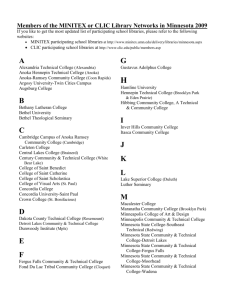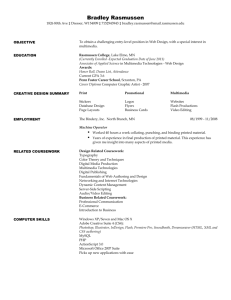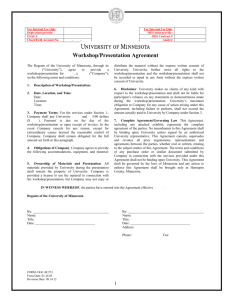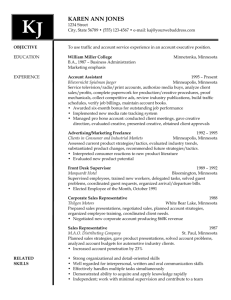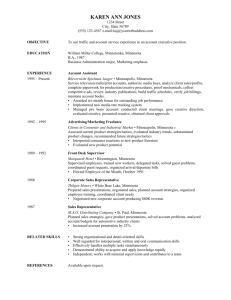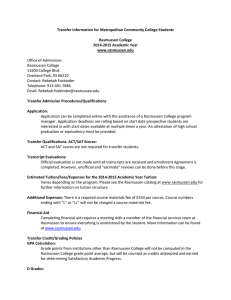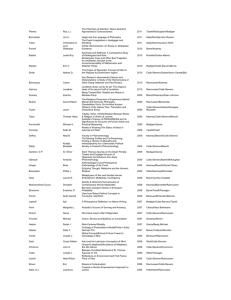Thank you for joining us at the MLFCCA Winter Break Training Day!
advertisement
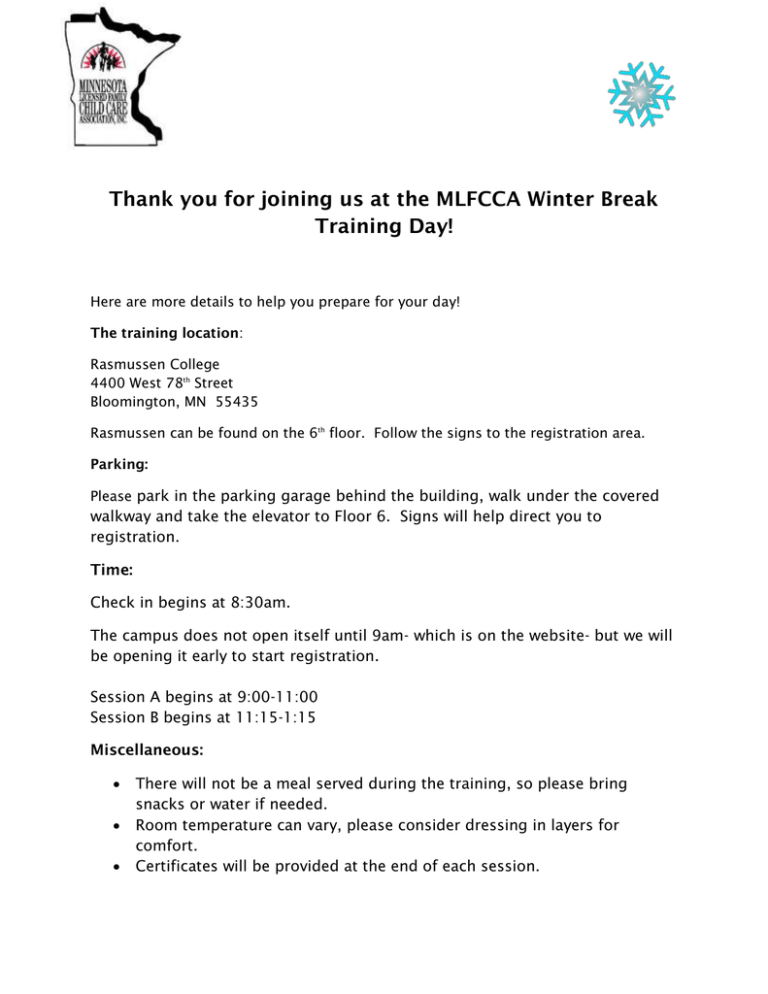
Thank you for joining us at the MLFCCA Winter Break Training Day! Here are more details to help you prepare for your day! The training location: Rasmussen College 4400 West 78th Street Bloomington, MN 55435 Rasmussen can be found on the 6th floor. Follow the signs to the registration area. Parking: Please park in the parking garage behind the building, walk under the covered walkway and take the elevator to Floor 6. Signs will help direct you to registration. Time: Check in begins at 8:30am. The campus does not open itself until 9am- which is on the website- but we will be opening it early to start registration. Session A begins at 9:00-11:00 Session B begins at 11:15-1:15 Miscellaneous: There will not be a meal served during the training, so please bring snacks or water if needed. Room temperature can vary, please consider dressing in layers for comfort. Certificates will be provided at the end of each session. Sessions: Session A: (9:00-11:00) Do Children Bounce? Promoting Resiliency (CCI) Presented by Mary Muhs, ECE Department Chair, Rasmussen College In our world today, how children respond to change and adversity can determine their success in school and life. Examine and analyze key factors for developing resilient behaviors in young children and adults. Discover strategies to become more resilient in response to change and help children stand up to bully-like behaviors. SUIDS/AHT (CC VI) Presented by Barbara Wagner, Executive Director, Minnesota Licensed Family Child Care Association This class meets DHS Licensing training requirements for both Sudden Unexpected Infant Death (SUID) and Abusive Head Trauma (AHT). Content includes recommendations to reduce Sudden, Unexpected Infant Deaths (SUID) including SIDS, suffocation, and other sleep related infant deaths; safe sleep environments; MN Child Care regulations related to safe sleep; as well as symptoms and consequences of abusive head trauma, risk factors for abusive head trauma; strategies to use when stressed, angry or frustrated For Art's Sake: the benefit of getting creative with infants (CC II & III) Presented by Kristen Wheeler-Highland, Early Childhood Specialist, Minnesota Association for the Education of Young Children According to the advocacy organization American for the Arts, creative art activities can help children develop in a litany of ways by building critical thinking skills, strengthening problem-solving abilities, stimulating imagination and more. Making art with infants is as much about the process as the product. We will discuss the developmental benefits of creative art with infant and explore some fun art activities and ideas! Session B: (11:15-1:15) Are you an Advocate? (CC VIII) Presented by Mary Muhs, ECE Department Chair, Rasmussen College Do you want to be an advocate, but uncertain or nervous about how to get started? In this session participants will explore the who, what, where, how and why of advocating for early childhood education, children and their families. Discover means of working together for a common goal and how to share your personal story with those in positions of influence and legislation. Create a plan to be the advocate you already are today! Moovin’ and Groovin’ fun for under $10.00 (CC II) Presented by Barbara Wagner, Executive Director, Minnesota Licensed Family Child Care Association This workshop will get your children moovin’ and groovin’! Learn how to create a fun and exciting movement program with low cost items and many ideas that you can use right away to increase your children’s physical activity. You are sure to walk away with dozens of ideas for children young and old! With Boys and Girls in Mind: Talking about the difference in development and learning (CC 1) Presented by Kristen Wheeler-Highland, Early Childhood Specialist, Minnesota Association for the Education of Young Children Since the 1990’s we have known so much more about brain development and how this is affected by gender. We now have more biological and neurological information about how children learn-and learn best. Join us for a look at the most recent information about the differences.
